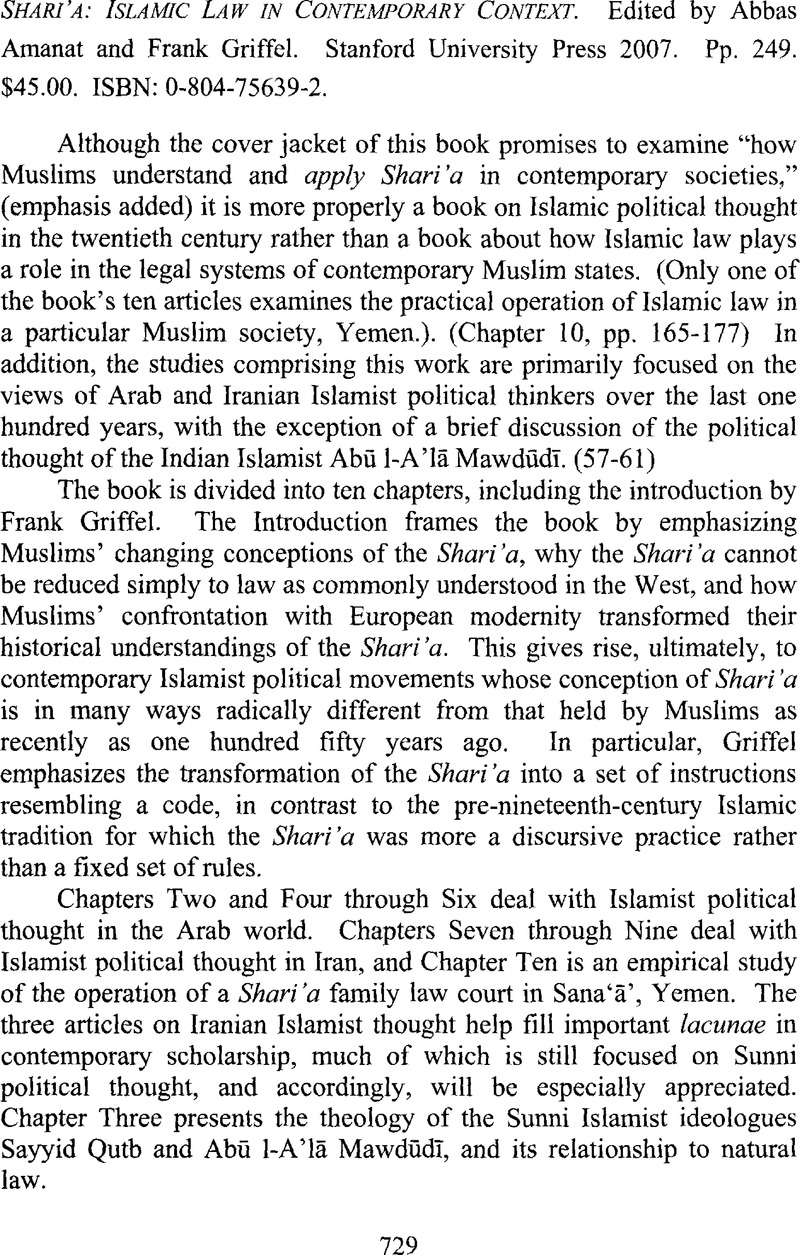No CrossRef data available.
Published online by Cambridge University Press: 24 April 2015

1. Yūsuf al-Qaradāwī is a highly-influential Egyptian jurist living in Qatar where, among other things, he hosts a very popular show on the al-Jazeera satellite station in which he discusses issues of contemporary life and Islam. While al-Qaradāwī has the reputation of being a liberal cleric on many social issues, he remains highly controversial in the West for his willingness to endorse the use of suicide bombing against Israelis in Palestine. Qaradāwī maintains a personal website at www.qaradawi.net.
2. Muhammad Sa'id Ramadan al-Būtī is a prominent Syrian scholar of traditionalist bent. He maintains a personal website in English and Arabic at www.bouti.net.
3. Sayyid Qutb is a prominent Egyptian Islamist who was executed by the regime of Jamal 'Abd al-Nasir in 1966. Qutb is most famous for his theory of Jahiliyya, or “barbarism.” Traditionally used to describe the period of Arab history prior to Islam, Qutb transformed this term into a political concept describing any regime not governed by Islamic principles. On this basis, he condemned his own state, Egypt, as being in a state of barbarism and thus requiring revolutionary Islamic reform.
Abu al-A'la al-Mawdūdī, an Indian thinker and activist, helped found the Jama'at-i Islami movement in the Indian subcontinent. Despite his lack of formal theological training, his writings on the idea of an Islamic state proved to be quite influential, not only in the subcontinent, but also elsewhere in the Islamic world.